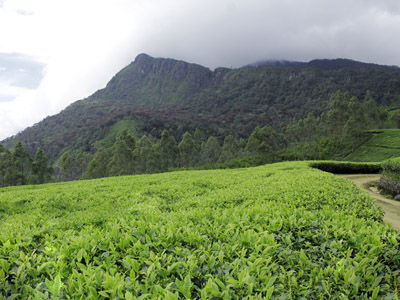Planters' Association raises alarm on land redistribution proposals
 The Planters’ Association of Ceylon (PA) issued a statement raising its serious reservations as to the feasibility and potentially ruinous impact of recent budget proposals on Sri Lanka’s plantation industry. The Planters’ Association of Ceylon (PA) issued a statement raising its serious reservations as to the feasibility and potentially ruinous impact of recent budget proposals on Sri Lanka’s plantation industry.
The proposal in question calls for a reduction in the maximum acreage that can be held by any stand-alone plantation company. Without being allowed to consolidate, each RPC is proposed to be drastically reduced down to a maximum extent of 5,000 acres. The Government also issued assurances that employment for estate workers would not be disrupted as a result of the new proposals.
The Association noted with strong concern a distressing lack of clarity around core aspects of last week’s Budget proposal - from its overarching goal of fragmenting the country’s plantation estates which would compromise the sector’s ability compete within economies of scale, to a complete lack of any legal, regulatory or procedural mechanisms to enforce the overhaul called for by the Government’s proposal. In the case of some RPCs, the proposal could result in a slashing of RPC estates from 25,000 acres down to 5,000, all with no clear mechanisms for objective evaluation of the lands, a review and appeals process or plans for the relocation of estate communities as a result of the proposed restructuring.
A further point of serious contention was the lack of consideration afforded to the impact of the proposals on RPC liabilities, which in turn are funded through borrowing from the country’s domestic banking sector. With substantial extents of RPC land having previously been advanced as collateral to support bank borrowing, the PA cautioned that Sri Lanka’s banking sector could also be placed in jeopardy by the radical alterations proposed in Budget 2017 as a result of the high exposure that the banking sector maintains to date in the plantation industry.
Similarly, the PA cautioned against the detrimental impact that the proposal would have on domestic and international investor confidence given that the Government’s proposed measures would only be possible through the revocation of the 53 year lease agreement which was the legal basis upon which the RPCs were charged with taking over management of Sri Lanka’s plantation sector. With 23 years currently completed on the lease, the Government’s proposal to disregard this agreement, and totally disrupt the investments that have been made into these estates, half-way through a lease agreement, could only be seen as an arbitrary and retroactive in nature.
In addition to concerns over the instability the proposals could directly cause in the plantation and banking sectors, the PA also warned against the injustice that such measures would cause to RPC shareholders, which are comprised of a diverse spectrum of respected institutional investors and private investors. Given that all of Sri Lanka’s RPCs are publicly listed companies, the proposals would amount to a serious disruption of prestigious publicly traded companies that have supported the development of the Sri Lankan economy for decades.
Finally, the PA issued a formal protest against the total lack of transparency and consultation in the formulation of the Government’s Budget proposals. The association noted with dismay and disappointment that the Government had excluded all major stakeholder groups from the discussion when formulating such a radical policy for the plantation sector. The Association noted that such a lack of clarity would only serve to create uncertainty and instability among stakeholder groups.
The Planters’ Association concluded their statement by calling on the Government, even at this late stage, to enter into discussions with the PA and all major plantation stakeholders as a matter of urgency to engage in an open and fair discussion as to the merits, practical feasibility, and negative ramifications of its proposal on the plantation industry in a manner that would result in a solution that is equitable and fair to all stakeholders and furthers the long-term sustainability of the plantation sector.
Released in Nov 2016
|